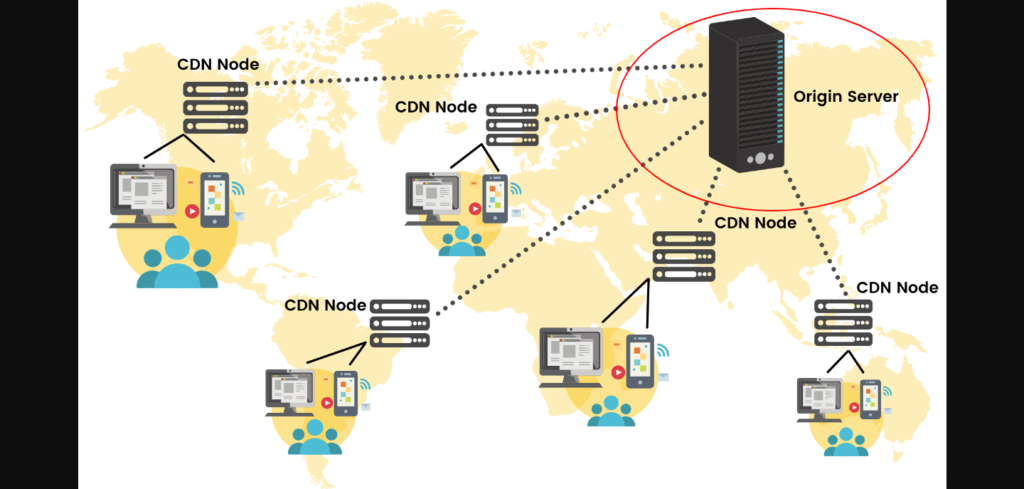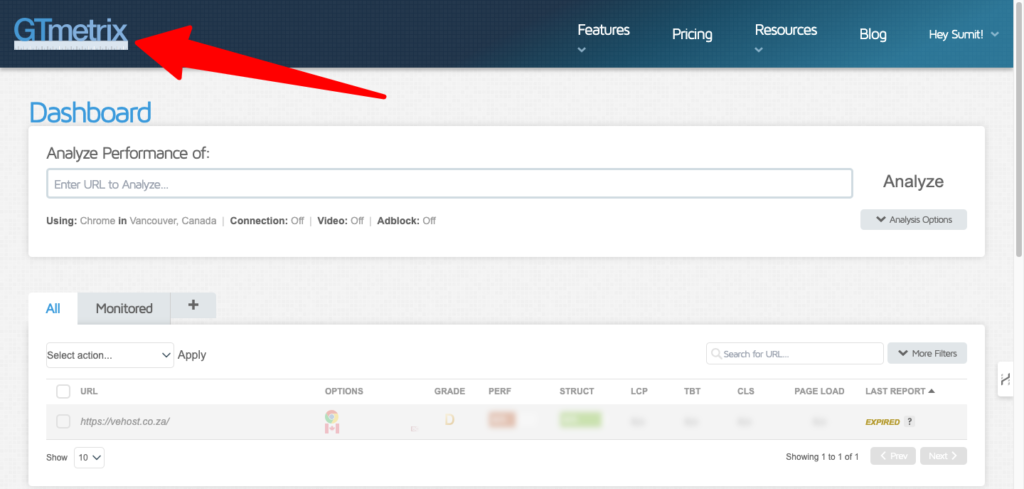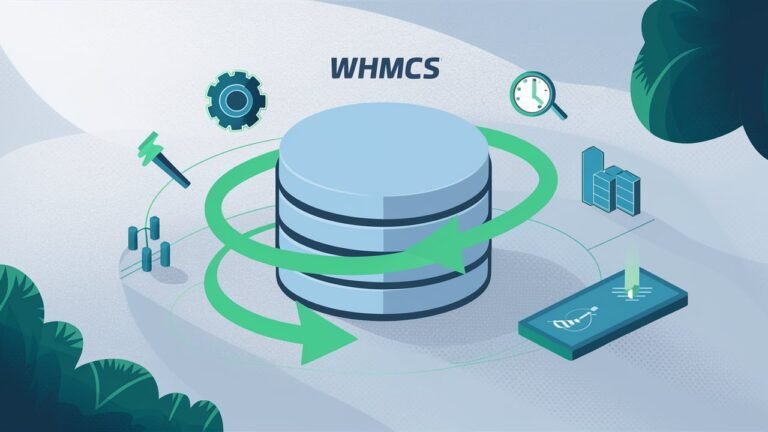Hey there, web hosting pros! Ever felt like your WHMCS setup is dragging its feet? You're not alone. Slow loading times can frustrate customers and hurt your business. But what if I told you there's a simple solution that could turbocharge your WHMCS performance?
Enter CDN for WHMCS. This nifty tool can dramatically speed up your hosting platform, giving your clients lightning-fast access to their accounts. Imagine slashing load times, boosting customer satisfaction, and potentially even improving your search rankings.
Intrigued? You should be. A CDN could be the secret weapon your hosting business needs to stay competitive. And the best part? It's easier to set up than you might think.
Ready to take your web hosting billing software to the next level? Let's dive into how a CDN can supercharge your WHMCS and help you start a web hosting company that stands out from the crowd.
CDN for WHMCS can supercharge your hosting business. I've seen it transform sluggish sites into speed demons. Let's break down why it matters and how to set it up right.
What's a CDN and Why Should You Care?
A Content Delivery Network (CDN) is like having mini-servers all over the world. It stores copies of your site's static content – images, CSS, JavaScript – closer to your visitors. This means faster load times, no matter where your customers are.

For WHMCS users, this is huge. Your client area, shopping cart, and admin panel all become snappier. Happy customers, fewer support tickets, and better conversions. Win-win-win.
Picking the Right CDN for WHMCS
Not all CDNs play nice with WHMCS. You need one that:
- Supports SSL (crucial for secure checkouts)
- Offers easy integration
- Has a solid track record with dynamic content
I've had great results with Cloudflare and StackPath. They're both WHMCS-friendly and offer free tiers to get you started.
Setting Up Your CDN
The basic steps:
- Sign up for a CDN service
- Add your WHMCS domain to the CDN
- Update your DNS settings
- Configure WHMCS to use the CDN URLs
Sounds simple, right? It can be, but there are some gotchas to watch out for.
Common Pitfalls (And How to Avoid Them)
1. SSL Mismatches: Make sure your CDN's SSL cert matches your domain. Nothing kills conversions faster than a browser warning.
2. Caching Issues: Some dynamic WHMCS content shouldn't be cached. You'll need to tweak your CDN settings to exclude certain URLs.
3. File Permissions: If your CDN can't access certain files, you'll get partial acceleration. Double-check those permissions!
4. Forgetting Admin Areas: Don't just focus on the client-facing parts. Your admin panel needs love too for a smoother backend experience.
Measuring the Impact
Once you've set up your CDN for WHMCS, how do you know it's working? Here's what to look at:

- Page load times (use tools like GTmetrix)
- Server resource usage (should decrease)
- Conversion rates (especially on your order forms)
- Support tickets related to site speed
Keep an eye on these metrics before and after implementation. The difference can be striking.
Beyond the Basics: Advanced CDN Tricks
Ready to level up? Try these pro moves:
- Image optimization at the CDN level
- Geo-blocking to fend off attacks
- Custom caching rules for WHMCS-specific content
These tweaks can squeeze even more performance out of your setup.
CDN for WHMCS isn't just a nice-to-have. In today's competitive hosting market, it's becoming essential. Get it right, and you'll see happier customers, better performance, and a smoother operation overall.
Want to dive deeper into optimizing your hosting setup? Check out my guide on WHMCS performance optimization for more tips and tricks.
And if you're looking to take your web hosting game to the next level, don't miss my article on how to start a web hosting company. It's packed with insights from my 13 years in the industry.
Remember, a fast, reliable CDN for WHMCS is just the beginning. Keep experimenting, keep optimizing, and watch your hosting business soar.
Maximizing CDN Performance for WHMCS
Setting up a CDN for WHMCS is just the first step. Let's dive deeper into how to squeeze every ounce of performance out of your setup.
Fine-tuning CDN Settings for WHMCS
Getting your CDN to play nice with WHMCS takes some tweaking:
- Exclude dynamic pages from caching (e.g. cart, checkout)
- Set appropriate TTLs for static content
- Enable compression for faster delivery
- Use browser caching headers
These small adjustments can make a big difference in how your WHMCS installation performs.
Integrating CDN with WHMCS Templates
Your template choice matters when using a CDN:
- Opt for templates optimized for CDN usage
- Ensure all assets are served via CDN
- Use relative URLs in your template files
A CDN-friendly template can boost your site's speed significantly.
Monitoring CDN Performance for WHMCS
Keep an eye on these metrics:
- Cache hit ratio
- Origin fetch time
- Bandwidth usage
- Error rates
Regular monitoring helps you spot and fix issues before they impact your customers.
Security Considerations for CDN with WHMCS
A CDN can enhance your security, but you need to configure it right:
- Enable WAF (Web Application Firewall)
- Set up rate limiting to prevent DDoS attacks
- Use geo-blocking for high-risk regions
- Implement HTTPS everywhere
These measures protect both your WHMCS installation and your customers' data.
Optimizing Images for CDN Delivery in WHMCS
Images often make up the bulk of your content. Optimize them for CDN delivery:
- Use WebP format where supported
- Implement lazy loading
- Set up automatic image optimization at the CDN level
- Use responsive images for different screen sizes
Proper image optimization can drastically reduce load times.
Leveraging CDN Analytics for WHMCS Insights
Your CDN's analytics can provide valuable data:
- Track popular content
- Identify slow-loading pages
- Analyze traffic patterns
- Spot potential security threats
Use these insights to continuously improve your WHMCS setup.
CDN and Mobile Optimization for WHMCS
Mobile users need special attention:
- Use mobile-specific caching rules
- Implement AMP (Accelerated Mobile Pages) where appropriate
- Optimize for mobile-first indexing
A mobile-optimized CDN setup can significantly improve user experience on smartphones and tablets.
Scaling Your CDN Setup as Your WHMCS Business Grows
As your hosting business expands, so should your CDN strategy:
- Add more PoPs (Points of Presence) in key regions
- Implement multi-CDN setups for redundancy
- Upgrade to enterprise-level CDN features
- Consider bare metal CDN for ultimate performance
Scaling your CDN properly ensures your WHMCS installation can handle increased traffic and demand.
Implementing these advanced CDN strategies for WHMCS can take your hosting business to the next level. Remember, it's an ongoing process of optimization and refinement.
For more tips on optimizing your WHMCS setup, check out my guide on WHMCS database optimization. And if you're looking to scale your hosting business, don't miss my article on how to start a web hosting company.
A well-configured CDN is just one piece of the puzzle. To truly excel in the hosting world, you need to stay on top of all aspects of performance and security. Keep learning, keep optimizing, and watch your WHMCS-powered business thrive.
CDN for WHMCS can be a game-changer for your hosting business. But there's more to it than just setting it up and forgetting about it. Let's dive into some advanced strategies that can take your WHMCS performance to the next level.
Multi-CDN Strategies for WHMCS
Using a single CDN is great, but why stop there? Multi-CDN setups can give you even better performance and reliability:
- Load balance between different CDN providers
- Automatically switch to the fastest CDN for each user
- Improve redundancy and uptime
I've seen multi-CDN setups cut load times by up to 50% in some cases. It's not just about speed – it's about giving your customers the best experience possible.
Edge Computing and WHMCS
Edge computing is the next frontier for CDNs. Here's how it can supercharge your WHMCS setup:
- Run server-side code at the edge for faster responses
- Customize content delivery based on user location
- Reduce load on your origin server
Imagine being able to serve dynamic WHMCS content without hitting your main server. That's the power of edge computing.
AI-Powered CDN Optimization for WHMCS
AI isn't just a buzzword – it's making CDNs smarter:
- Predictive content prefetching
- Automatic performance tuning
- Intelligent traffic routing
These AI-driven features can adapt to your WHMCS traffic patterns in real-time, ensuring optimal performance 24/7.
CDN Security Features for WHMCS
Security is crucial for any hosting business. Modern CDNs offer robust protection:
- Bot mitigation to prevent account takeovers
- DDoS protection at the network edge
- API abuse prevention
These features can save you from costly downtime and data breaches. Don't skimp on security – it's not worth the risk.
Optimizing Video Delivery in WHMCS
If you're using video content in your WHMCS setup (like tutorial videos), CDNs can help:
- Adaptive bitrate streaming
- Video compression at the edge
- Global video caching
Smooth video playback can significantly improve user engagement and reduce support tickets.
CDN Analytics for WHMCS Insights
Your CDN can be a goldmine of data. Here's what to look for:
- Real-time traffic patterns
- Geographic distribution of users
- Content popularity metrics
Use these insights to optimize your WHMCS content strategy and server resources.
CDN Integration with WHMCS Plugins
Many WHMCS plugins can benefit from CDN integration:
- Optimize marketplace plugins for faster browsing
- Accelerate support ticket attachments
- Speed up custom WHMCS modules
Don't forget about your plugins when setting up your CDN – they're often overlooked but can have a big impact on performance.
CDN Cost Optimization for WHMCS
CDNs can save you money, but only if you use them smartly:
- Implement smart purging to reduce origin fetches
- Use tiered caching to optimize costs
- Monitor and adjust your CDN plan based on actual usage
A well-optimized CDN setup can actually lower your overall hosting costs while improving performance.
Future-Proofing Your WHMCS CDN Strategy
The CDN landscape is always evolving. Stay ahead of the curve:
- Keep an eye on emerging CDN technologies
- Test new features in staging environments
- Regularly review and update your CDN configuration
What works today might not be the best solution tomorrow. Stay flexible and keep learning.
FAQs About CDN for WHMCS
Q: Will a CDN work with my custom WHMCS theme?
A: Yes, but you might need to make some adjustments. Ensure all your theme assets are properly referenced and cacheable by the CDN.
Q: Can I use a free CDN with WHMCS?
A: Absolutely. Services like Cloudflare offer free tiers that work well with WHMCS. Just be aware of the limitations compared to paid plans.
Q: How often should I update my CDN settings for WHMCS?
A: Review your settings quarterly, or whenever you make significant changes to your WHMCS setup or experience traffic spikes.
Q: Is it difficult to switch CDN providers with WHMCS?
A: It can be, depending on your setup. Plan for some downtime and thoroughly test everything in a staging environment first.
Implementing a CDN for WHMCS is just the beginning. By leveraging these advanced strategies, you can create a hosting experience that truly stands out. Remember, it's not just about speed – it's about creating a robust, secure, and cost-effective platform for your clients.
Want to learn more about optimizing your hosting business? Check out my guide on WHMCS performance optimization for more in-depth tips. And if you're looking to scale up, don't miss my article on how to start a web hosting company.
Remember, in the world of web hosting, standing still means falling behind. Keep pushing the boundaries of what's possible with your CDN for WHMCS, and you'll be well-positioned for success in this competitive industry.






